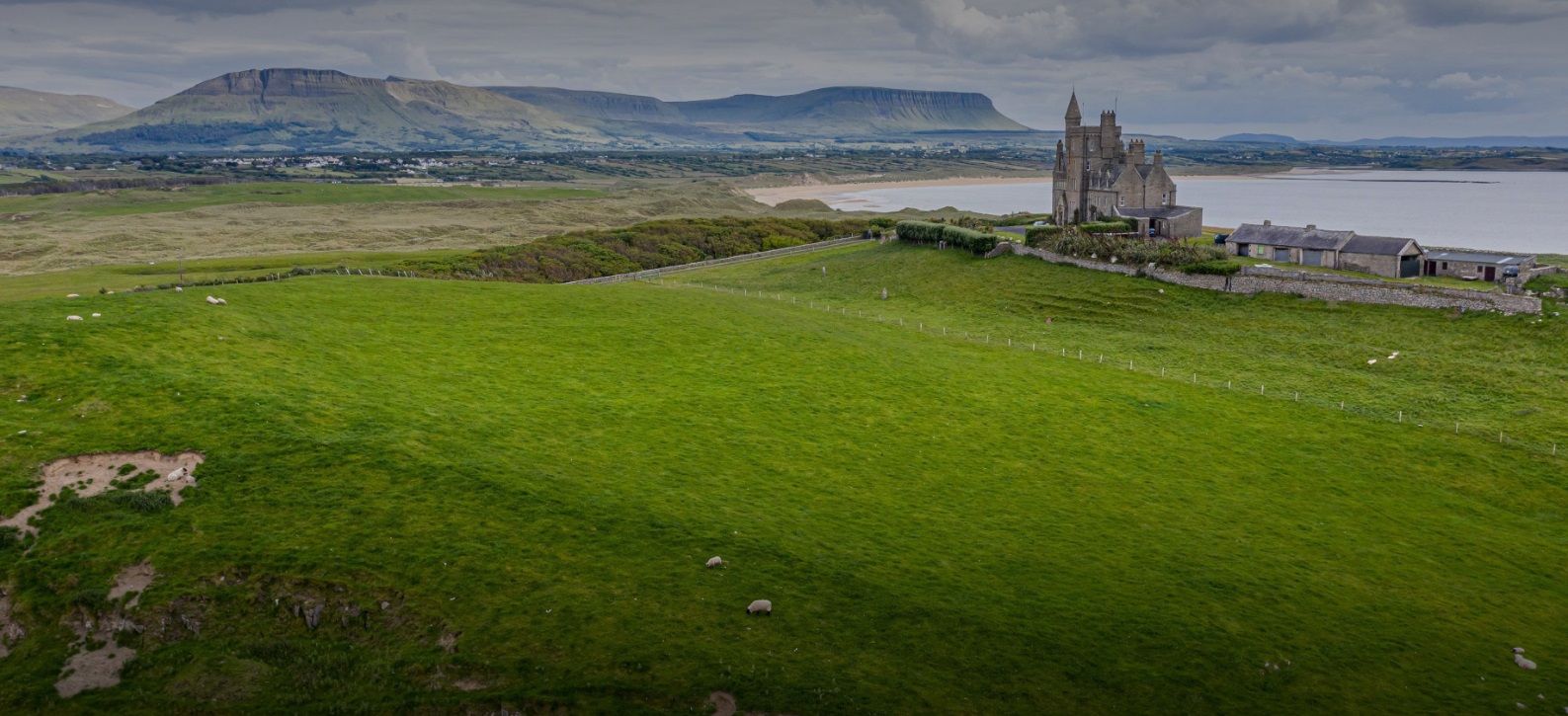
 ‘Ready to defend’: EU hardens line on Greenland as Trump doubles down threat
‘Ready to defend’: EU hardens line on Greenland as Trump doubles down threat
Donald Trump’s repeated threat to take control of Greenland one way or another has aroused a sense of alarm across Europe.
The European Union is hardening its official line against Donald Trump’s threat to take control of Greenland – using military force if necessary – following new comments that leave no doubt as to the seriousness of the American president’s expansionist intention.
“I think we’re going to have it,” Trump said over the weekend.
“I don’t really know what claim Denmark has to it, but it would be a very unfriendly act if they didn’t allow that to happen because it’s for the protection of the free world.”
Greenland is a semi-autonomous territory of the Kingdom of Denmark that is considered highly strategic due to its location in the Arctic Sea and wealth of rare metals. The effects of climate change are set to open new maritime routes and drilling opportunities.
Unlike Denmark, the sprawling island of 56,000 people is not a part of the 27-country bloc but enjoys a special status with access to EU funds and freedom of movement for Greenlanders, who are considered EU citizens.
Moreover, Greenland is covered by the mutual defence clause laid out by the EU treaties. Under Article 42.7, all member states have an “obligation of aid and assistance” if another member state falls “victim of armed aggression on its territory.”
“Borders may not be moved by force: To whom it may concern,” German Chancellor Olaf Scholz said on Tuesday after meeting with Danish Prime Minister Mette Frederiksen.
“The inviolability of borders is a fundamental principle of international law,” he continued, without mentioning Trump by name. “The principle must apply to all.”
“It is up to Europe to define the future of our continent,” Frederiksen said.
In Paris, France’s Foreign Minister Jean-Noël Barrot said that if Denmark were to request “solidarity” from EU countries, “France will be there.”
And in Brussels, Andrius Kubilius, the European Commissioner for Defence, declared: “We are ready to defend our member state, Denmark.”
The previous day, High Representative Kaja Kallas suggested the EU should speak the “language of transaction” to influence Trump’s decision-making and implied the president’s incendiary remarks should not be taken “word by word.”
Asked if the “language of transaction” meant a possible deal on Greenland could be struck with Washington, Kallas drew a red line: “No, we are not negotiating on Greenland. We are supporting our member state, Denmark, and its autonomous region.”
“What I meant with my comment was more general. This is the language that we have understood that the new administration speaks,” Kallas told reporters on Monday after a meeting of foreign affairs ministers where EU-US relations were discussed.
“We should also take into account what is our strength. We are an economic power. We are very much interlinked with America,” she went on.
“It’s not like somebody telling us what to do and we are following. But we are also stronger. We shouldn’t underestimate our own power.”
A ‘horrendous’ call
The interventions represent a more resolute stance compared to the lukewarm reaction given in the initial days of the political saga when Trump refused to rule out the possibility of deploying the American army to gain control over Greenland.
“We need it for national security,” Trump said earlier this month.
Back then, the European Commission spoke of “extremely hypothetical” scenarios and offered generic statements about the importance of respecting international law.
But with Trump and his officials doubling down on the threats, the prospect of an American invasion has become ever-more tangible for Brussels and the other capitals.
The sense of alert spiked after details emerged of a 45-minute phone call between Trump and Frederiksen, during which Trump insisted on his desire to take over the island and Frederiksen replied Greenland was not for sale.
The phone call was described as “icy” and “aggressive” by the New York Times. The Financial Times called it “fiery” and “horrendous,” citing sources.
The Danish government contested the description of the exchange, which took place five days before Trump was inaugurated.
The revelations have firmly put the issue at the top of the EU’s agenda and prompted fresh questions about how – or even if – the bloc could repel a potential invasion.
Frederiksen has embarked on a mini-tour to meet with her European counterparts, including Germany’s Olaf Scholz, France’s Emmanuel Macron and NATO’s Secretary General Mark Rutte, to shore up political support for the unprecedented challenge.
“Europe is facing a serious situation, with war on the continent and shifts in the geopolitical reality,” Frederiksen said on Monday. “In moments like this, unity is crucial.”
Meanwhile, the Danish government announced an injection of 14.6 billion kroner (€1.95 billion) to boost its military presence in the Arctic and North Atlantic region.
The issue of Denmark is expected to loom over the talks when the 27 EU leaders meet in Brussels next week for an informal summit devoted to defence and transatlantic relations.
Paula Soler and Tamsin Paternoster contributed reporting.
Denmark to inject almost €2bn into Arctic security amid Trump’s Greenland threats
Copenhagen is boosting its military spending and holding talks with European allies as Trump ramps up his expansionist rhetoric.
Denmark will inject 14.6 billion kroner (€1.95 billion) into boosting its military presence in the Arctic and North Atlantic region, the country’s Defence Minister Troels Lund Poulsen said on Monday, as US President Donald Trump has repeatedly demanded to buy or otherwise take control of Greenland.
“There are serious challenges regarding security and defence in the Arctic and North Atlantic,” Denmark’s Defence Minister Troels Lund Poulsen said in a statement, adding that the package would include three new Arctic naval vessels, two additional long-range surveillance drones and satellite capacity.
Danish Prime Minister Mette Frederiksen is meeting NATO allies German Chancellor Olaf Scholz, French President Emmanuel Macron and the alliance’s Secretary-General Mark Rutte in an effort to secure “unity” among European allies over Greenland, a semi-autonomous Danish territory.
“Europe is facing a serious situation, with war on the continent and shifts in the geopolitical reality,” Frederiksen said on Monday. “In moments like this, unity is crucial.”
Without directly referencing Trump, Scholz said ahead of their meeting that “Borders must not be moved by force – to whom it may concern,” according to German news agency dpa. “The inviolability of borders is a fundamental principle of international law,” he continued. “The principle must apply to all.”
The EU has said it is “not negotiating” with the US when it comes to Denmark’s sovereignty, and that it stands behind the government’s position.
Trump has repeatedly said he believes the US will gain control of the island, despite Fredericksen insisting the territory was not for sale in a fiery phone call with the US president last week.
News of the phone call between Frederiksen and Trump has heightened fears in Denmark that Trump is increasingly serious about his threats and demands.
Greenland is home to a large US space facility and is also located on the shortest route from North America to Europe.
Trump first floated the idea of taking control of the territory during his first term, insisting US control of the island was a “necessity” for international security. He has ramped up efforts to claim control over Greenland since his return to the White House, refusing to rule out using military force to take control of the territory.
The island’s rich natural resources have also caught the attention of countries such as Russia and China, who have increased their Arctic mining activities and military presence.
Both Frederiksen and Greenland’s prime minister, Múte Egede, have said the future of the territory should be determined by its citizens. In January, Egede pushed for independence from Denmark, which could be achieved through a successful referendum.
Greenland is covered by collective security of NATO, says Finnish foreign minister
Finland’s foreign minister Elina Valtonen says Greenland is protected by Article 5 of NATO.
Greenland is protected by NATO’s Article 5 which invokes mutual defence in the case of any armed attack or invasion, the Finnish foreign minister has said.
According to Elina Valtonen, Article 5 is extended to Greenland as an autonomous territory of Denmark, a NATO member.
When asked to confirm whether Denmark provides cover for Greenland, she responded, “Precisely.”
“It’s a good thing also that Greenland is part of Denmark and Denmark is in NATO,” Valtonen told Euronews’ The Europe Conversation.
Article 5 — a provision stating an attack on one is an attack on all — is the cornerstone of NATO’s allied defence pact.
The issue arose after US President Donald Trump recently reignited a call from his first administration to take over Greenland to shore up American power in the Arctic Sea.
He also wanted to take over the Panama Canal and turn Canada into the 51st US state.
When asked if he’d refrain from taking Greenland or Panama by force, he responded, “No, I can’t assure you on either of those two.”
However, Minister Valtonen said she believes Trump’s vocal demands about obtaining Greenland, the Panama Canal and Canada must be “distinguished” from his true intentions.
“With Trump, you have to distinguish between his way of speaking and also his true intentions,” she said. “The Arctic is becoming ever so important. So as an alliance, we should also be paying so much more focus on Arctic security.”
Due to global warming, the ice caps in the Arctic are melting, creating new sea routes opening up for large vessels and shortening navigation times. Greenland also has a supply of rare minerals, oil and gas.
China and Russia have already expanded their presence there, and the US has a presence but is eager to expand its foothold.
Meanwhile, Finnish authorities are continuing investigations into a seized oil tanker, the Eagle S, which is alleged to be part of Russia’s shadow fleet and potentially responsible for damage to undersea communications cables.
Finland is responding robustly to attacks from Russia as part of its hybrid war against Western targets, which includes sabotaging of critical infrastructure, harmful disinformation, cyber-attacks and GPS jamming, which authorities say are tactics deployed to enable a shadow fleet of fuel transporters to avoid detection.
“This is not just the Finnish problem,” said Valtonen.
Last week, Finnish President Alexander Stubb launched “Baltic Sentry” with Baltic Sea neighbours and NATO. It commits the allies in the Baltic Sea to heightened infrastructure security and surveillance in response to hybrid war threats.
“Quite many of the damages we’ve experienced over the course of the past I’d say 18 months in the Baltic Sea area have been influencing directly several coastal states,” said Valtonen.
“The shadow fleet is essentially responsible for transporting illegal oil … So it is responsible for funding Russia’s war of aggression in Ukraine,” she explained.




